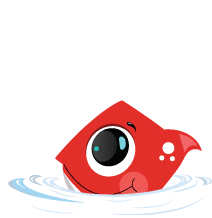Getting a child to learn and love a sport
- Jul 15, 2019
- 3 min read

Sports of any kind can teach kids and adults an array of life skills, including team work, a life-long commitment to fitness, motivation, discipline and social ability. While not everyone start off adventurous and/or even fond of physical exertion, the earlier one begins, the more adept they are as they mature into adults.
Physically active children are, of course, easier to encourage to take up a sport; while more quiet and studious kids are likely to be more resistant. As parents, it's important to understand that any form of participated sports add pressure to a child's nurturing environment. However, it is just as important to be supportive of the child's learning curve and have patience to wait it out alongside them rather than accepting a 'quit' claim.
The first people to root for a child are their parents; second to their playmates (teammates) and teachers. Cheerleaders act as a buffer to blunders, which kids are only too familiar with -- from their first few steps that went awry to their incoherent rapid firing of words in attempt to form a sentence. But there is a fine line between over-encouragement and excitement to absolutely terrifying the child by being an over kill-joy through a transference of expectations and passion.
Whatever sport a child is exposed to, it's crucial to start with baby steps. Just as one would inspire an adult into making a change, the learning of a new skill for children requires starting from the very beginning, laying out a clear foundation and doing the legwork to ensure secondary learning.
Go at their pace
Everyone learns at a different pace. This includes full grown adults with an abundance of know-how of the world's mechanics. Setting a chiseled out timeframe and curricula for children learning to swim for the very first time may feel a bit daunting, depending on how and at what pace the child learns. Information communicated as a group may not have a uniform interpretation, making the child who is falling behind feel small. However, given the right assessment of an individual rather than as a collection, lesson plans and mechanisms can be narrowed down and communicated to a specific child based on his/her language.
Competition-free mentality
Sports are mainly competitive, true. However, there's a clear difference between friendly competition and aggressive peg-you-against-me competition. No one wants to end up with the short stick; no child ever wants to be on the losing team or be the last in the race. The mentality and definition that governs competition is that winning is good, losing is bad. That stigma, when instilled over a period of time, becomes a truth that will govern the child who has grown into an adult. Having the drive to compete is 90 per cent of the win while the result makes up the balance 10.
Break time is fun time
A cry to stop doesn't mean the child is ready to throw in the towel and quit. Oftentimes, the routine is exhaustive and they are seeking for a short break to re-centre. Just like how grown-ups sometimes snooze for that extra five minutes to waddle in their morning thoughts, kids also need that extra breather between their scheduled activities to simply be with their waddling thoughts. Kids need to be kids; pushing them to further an agenda will only drive them to throw tantrums and/or become anti-social. The likelihood of a breather for a child might allow them the space to come back stronger, better, more committed than they were during their state of drainage.
The advantages of outsourced teachers
Undoubtedly, teachers skilled in teaching are god-sent. The thing about a teacher-student dynamic is that children are more likened to behave better and are less likely to whine without their parents' presence. Children are master manipulators and their victims are selectively the parent that would most likely grant them what they want, even with something as small as getting out of learning something. Teachers are collected and they've spent years honing communication skills to discipline and bring order to a mess hall of frantic and excited new learners.





























Comments